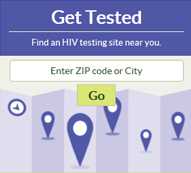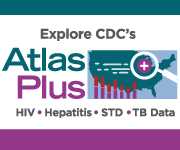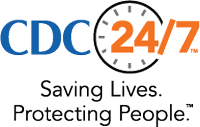Syringe Services Programs (SSPs) for People Who Inject Drugs (PWID)
March 30, 2016
Yesterday, the U.S. Department of Health and Human Services (HHS) issued implementation guidance to ensure that state and local communities are aware of the circumstances under which federal funds may be used to support certain components of Syringe Services Programs (SSPs) for people who inject drugs (PWID). In order to direct existing grant funding to SSPs, state, local, territorial, and tribal health departments must first consult with the U.S. Centers for Disease Control and Prevention (CDC) and provide evidence that their jurisdiction is (1) experiencing or, (2) at risk for significant increases in viral hepatitis infections or an HIV outbreak due to injection drug use. This guidance follows The Consolidated Appropriations Act, 2016 (Pub. L. 114-113), which was recently signed into law by President Obama.
While HIV infections among PWID have been steadily declining, the United States is currently experiencing an opioid epidemic involving increases in unsafe and unsterile injection practices. As a result, in recent years the nation has experienced a 150% increase in hepatitis C virus (HCV) infections, increases in hepatitis B virus (HBV) infections among PWID, and a large outbreak of HIV infections among PWID. Along with other tools and strategies proven to a) reduce the risk of HIV infection and b) prevent and treat substance abuse itself, SSPs can be a valuable component of a comprehensive prevention strategy for PWID and their partners. Evidence has consistently shown that SSPs are effective public health interventions that reduce the transmission of HIV, facilitate entry into drug treatment and medical services, and do not increase illegal drug use.
In early-to-mid April, CDC will release program guidance specific to CDC-funded grantees outlining which SSP activities can be supported, which cooperative agreements can be used to support SSPs, and the process for programs to follow when requesting resources to implement or expand SSPs.
CDC is committed to helping communities use all effective tools to stop the spread of HIV and viral hepatitis. Last year’s outbreak in Indiana was a powerful reminder that people who inject drugs are at high risk for both HIV and HCV, and that these infections, as well as HBV, can gain ground at any time unless we remain vigilant about prevention, testing and care.
The new law represents an opportunity to achieve a greater impact on reducing new HIV and viral hepatitis infections. We look forward to continuing to work with you to make a difference in the HBV, HCV, and HIV epidemics in the United States.
Sincerely,
/Jonathan Mermin/
Jonathan H. Mermin, M.D., MPH
Director
National Center for HIV/AIDS, Viral Hepatitis, STD, and TB Prevention
Centers for Disease Control and Prevention
www.cdc.gov/nchhstp
- Page last reviewed: June 29, 2016
- Page last updated: June 29, 2016
- Content source:


 ShareCompartir
ShareCompartir


